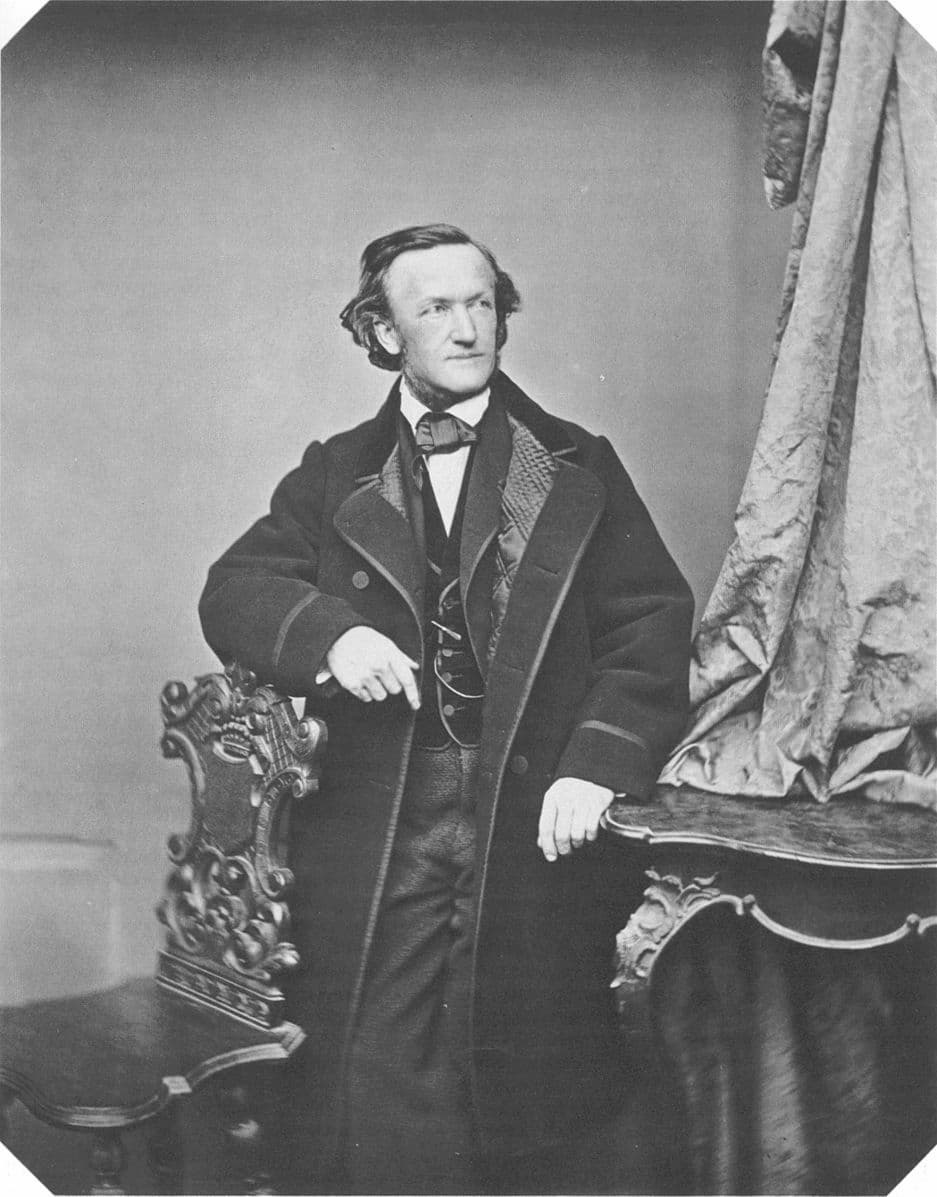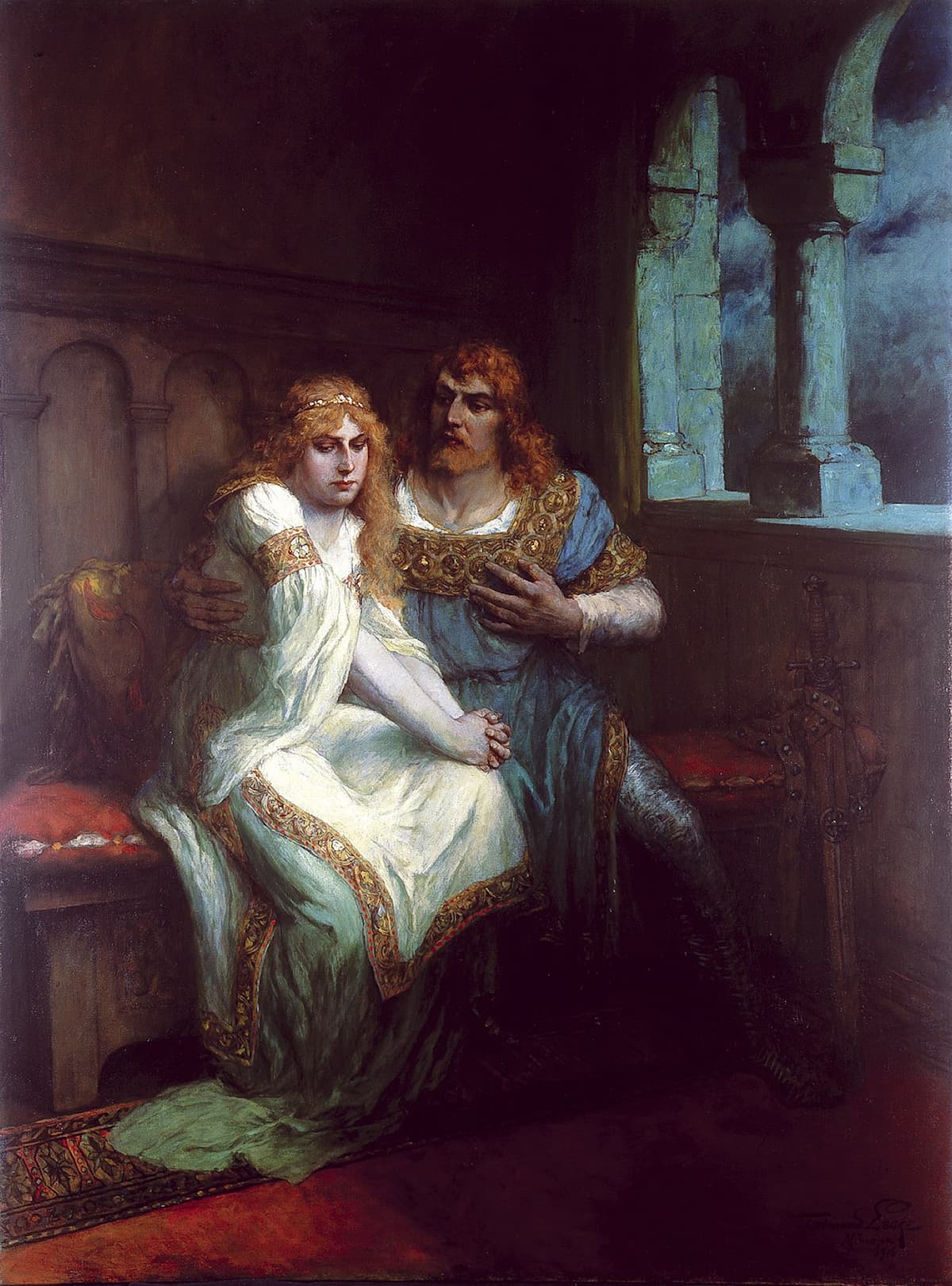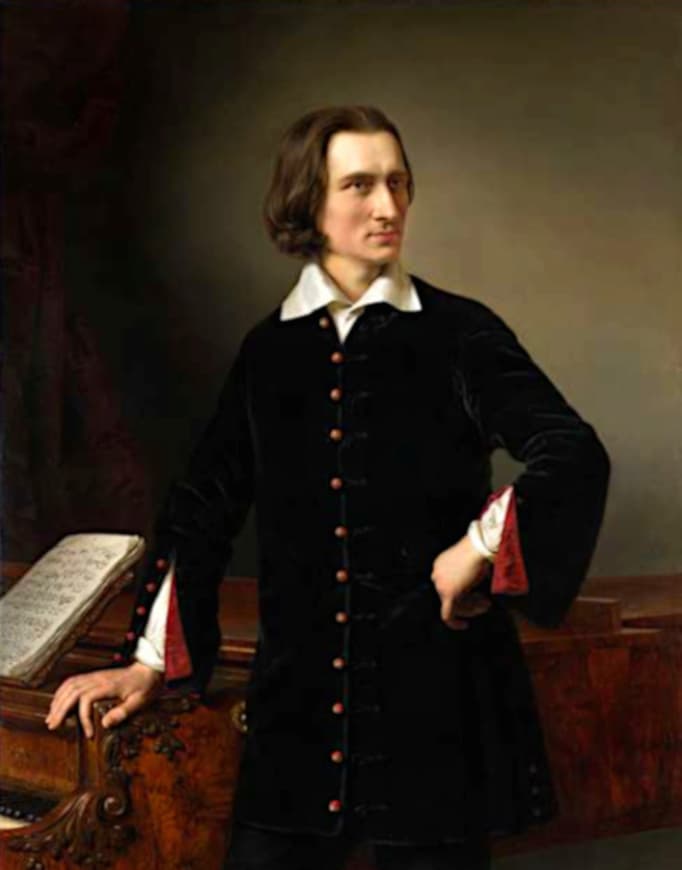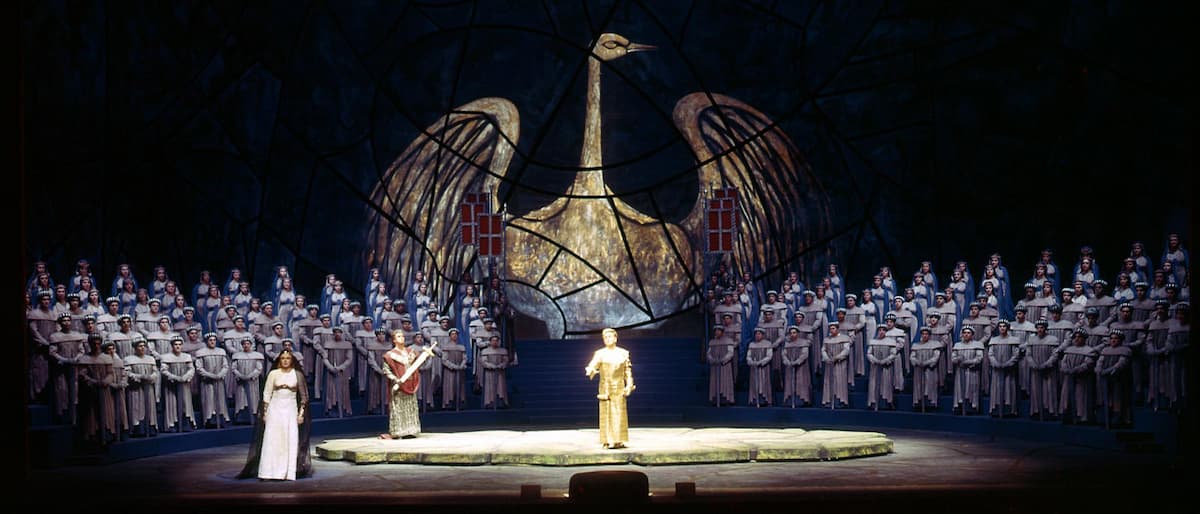As soon as Richard Wagner had put the finishing touches on Lohengrin on 28 April 1848, he got embroiled in the revolutionary stirrings of the 1848 Revolutions. In Dresden, barricades were erected and the king presented with demands for democratic reform. Wagner lobbied for the organization of a German national theatre, “which proposed that the director of such an institution be elected, that a drama school be set up, the court orchestra expanded and its administration put under self-management.”
Richard Wagner: Prelude to Lohengrin
What Happened to Wagner During the 1848 Revolution?

Richard Wagner, 1860
By June 1848 Wager delivered a fiery speech, denouncing the evils of money and speculation, immoralities he considered barriers to the emancipation of the human race. To be sure, Wagner was knee-deep in financial difficulties, as he was looking for the sum of 5,000 thalers to pay his creditors. He turned to his good friend Franz Liszt, asking him to become the owner of the copyright of all his opera. As he writes, “with this money you will buy me out of slavery. I should once more be a HUMAN BEING, a man for whom existence would be possible.”

Lohengrin by German painter Ferdinand Leeke
Liszt’s response has not survived, but by 1 July Wagner informs Liszt that he is fighting for life or death and that a selection from Lohengrin was scheduled for performance in September to mark the 300th anniversary of the court orchestra. Wagner did conduct excerpts from Act 1, but within a couple of months, his active role in the Dresden insurrection forced him to flee for his life. Prussian troops started to assert control over the city in May 1848, and Wagner first fled to Liszt in Weimar and subsequently made his way to Switzerland on a false passport.
Richard Wagner: Lohengrin, “Einsam in trüben Tagen”
Wagner in Switzerland
During his first years in exile, Wagner formulated a set of aesthetic theories, including Art and Revolution, The Artwork of the Future, and Opera and Drama. Concordantly, he was looking to stage the first production of Lohengrin by once again lobbying Franz Liszt. Calling it his “latest and ripest work,” he sent the complete score to Liszt in Weimar, but his close friend was slow in responding, and when he did, it wasn’t what Wagner had expected. “The admirable score of Lohengrin has interested me profoundly; nevertheless I fear at the performance the super ideal colour which you have maintained throughout…My sincere friendship for you may authorize me to tell you.”

Franz Liszt, 1847
Trying to make amends, Liszt wrote on 29 July 1849, “the more I enter into the conception and masterly execution of Lohengrin, the higher rises my enthusiasm for this extraordinary work. Forgive my wretched pusillanimity if I still have some doubt as to the wholly satisfactory result of the performance.” Wagner was once again in deep financial troubles, and he offered the score and all rights for sale. By January 1850, Wagner was reduced to begging. As he implores Liszt, “Perform my Lohengrin! You are the only one to whom I could address this prayer.”
Richard Wagner: Lohengrin’s Entrance
Liszt’s Contribution to the Rehearsals and the Performance
Liszt did hear Wager’s prayer and scheduled the premiere for 28 August 1850 to coincide with the birthday of Johann Wolfgang von Goethe. Wagner immediately sprang into action and demanded “give the opera as it is; cut nothing!” Liszt reports back, “your Lohengrin will be given under exceptional conditions, which are most favourable to its success. The press will not be forgotten, and suitable and seriously conceived articles will appear successively in several papers.”

Lohengrin at the Met © The Metropolitan Opera
As to practical matters, Liszt increased the number of violins to eighteen and hired a bass clarinet. Liszt personally undertakes all the rehearsals with pianoforte, chorus, strings, and orchestra, following all of Wagner’s mise-en-scene with zeal and energy. “It is understood that we shall not cut a note, not an iota, of your work, and that we shall give it in its absolute beauty, as far as it is in our power. Lohengrin must be an event.”
Richard Wagner: Lohengrin “Elsa and Ortrud Duet”
The Premiere
As much as Wagner might have wished to be part of that event, it was simply not possible. Liszt wrote, “your return to Germany and visit to Weimar for the performance of Lohengrin is an absolute impossibility…you should be served with intelligence and dignity, and you would not be served in that manner by hazarding steps which must infallibly lead to an unfavourable result.”
The premiere unfolded as planned, and Liszt reported on 1 September 1850, “your Lohengrin is a sublime work from one end to the other. The tears rose from my heart in more than one place. The whole opera being one indivisible wonder, I cannot stop to point out any particular passage, combination, or effect.” Liszt tightly controlled the press making sure that the public at large “think themselves in honour bound to admire and applaud what they cannot understand.” And as it happened, Wagner would only be able to attend a full performance of Lohengrin in 1861, in Vienna.
For more of the best in classical music, sign up for our E-Newsletter
